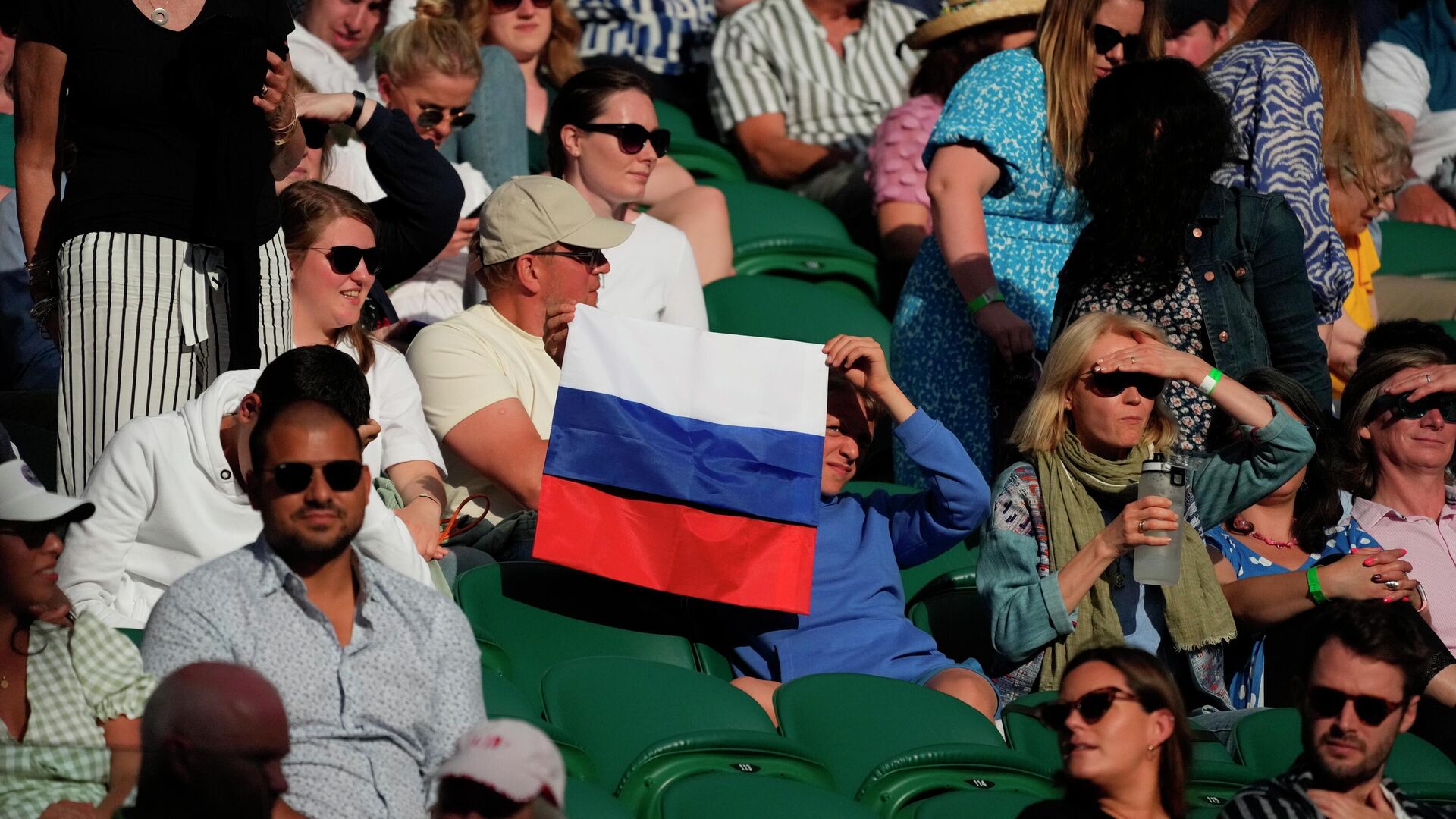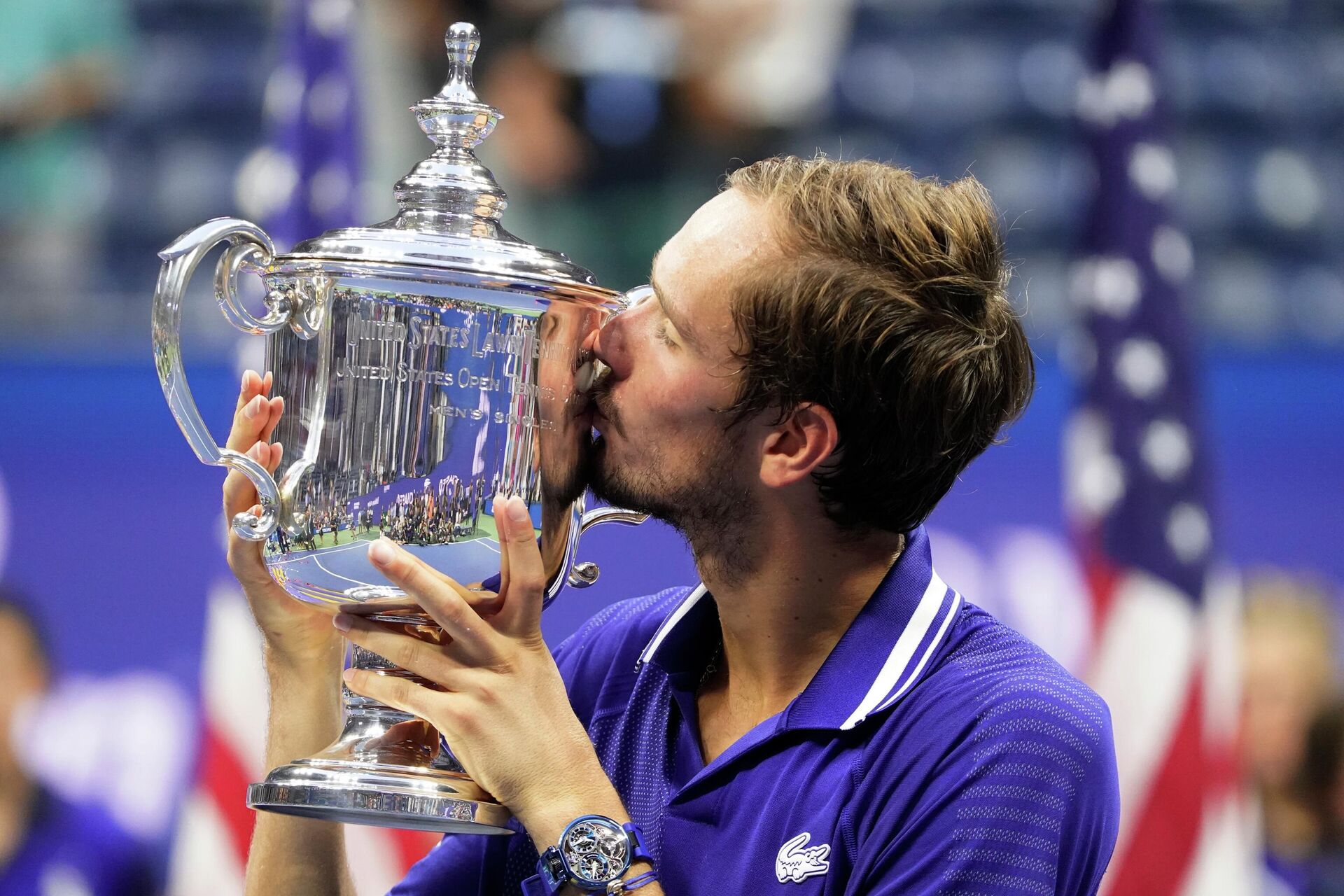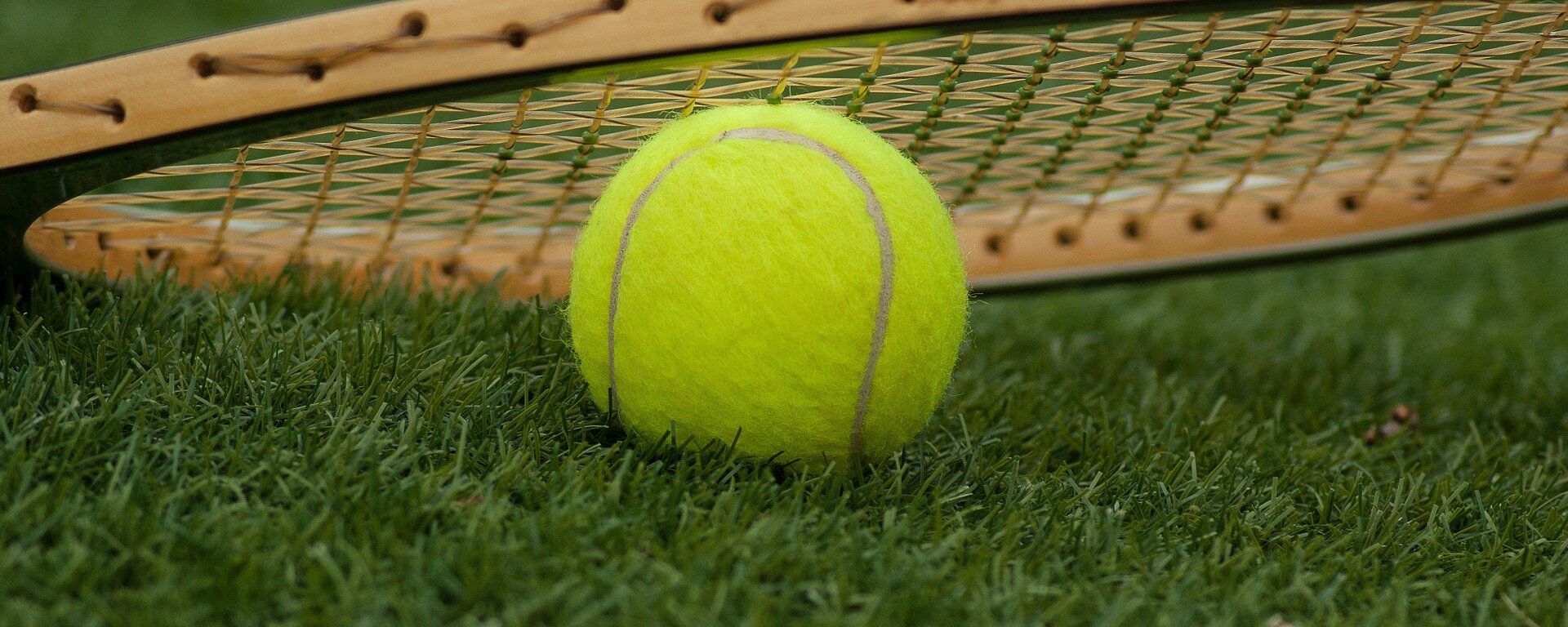WTA Chief: Expect 'Strong Reaction' to Wimbledon's Ban on Russian, Belarusian Players
00:58 GMT 25.04.2022 (Updated: 15:19 GMT 28.05.2023)

© AP Photo / Alberto Pezzali
Subscribe
All England Club and Lawn Tennis Association cited the situation in Ukraine as the reasoning behind its decision to block both Russian and Belarusian players from competing at grass-court events in the UK, including the WTA’s Cinch Championships, both the Rothesay Classic and Open, and the prestigious Grand Slam Wimbledon.
Steve Simon, head of the Women’s Tennis Association (WTA), warned Wimbledon organizer All England Club (AELTC) and the Lawn Tennis Association (LTA) that the joint decision to not allow Russian and Belarusian players to complete in UK-based events comes contrary to Grand Slam rules, and will incur “strong reactions” from the international community.
The WTA chief explained in the latest episode of the The Tennis Podcast that the AELTC’s “discriminatory” ban of Russian and Belarusian players from grass-court events violated Grand Slam regulations, while the LTA violated rules related to athlete entry.
“We don't have the same jurisdiction over the Grand Slams as we do [over] our own sanctioned events. We have precedents ... where these situations may have occurred where fines and tournament sanctions have been imposed,” Simon told the weekly tennis podcast.
Several related authorities–including player councils and the WTA board–are going to have to sit down in the wake of the situation and “see where everything’s at,” he suggested. .
“I do think that you'll see some strong reactions that will come from us, but what those are and how far they'll go is still to be determined,” the WTA chief said.
The WTA and ATP, the global men’s tour, have banned both Russia and Belarus from international team competitions due to the situation in Ukraine, but allow individual players from the countries to compete as neutrals.
Similar player guidelines were adopted by the International Tennis Federation.

Daniil Medvedev, of Russia, kisses the championship trophy after defeating Novak Djokovic, of Serbia, in the men's singles final of the U.S. Open tennis championships, Sunday, Sept. 12, 2021, in New York. Tennis players from Russia and Belarus will not be allowed to play at Wimbledon this year because of the war in Ukraine, the All England Club announced Wednesday, April 20, 2022.
© AP Photo / John Minchillo
Simon noted that the WTA and ATP were in discussion about how to address the issue, although the governing bodies’ decisions will be made independently.
“People take the position that sports and politics shouldn't match and shouldn't be intertwined, but that's not the reality," the WTA chief remarked. "At times, sports does cross into politics, and here is a situation where politics is crossing into sports.”
The AELTC claimed in its announcement that it was carrying out the ban as part of the widespread push to “limit Russia's global influence through the strongest means possible.”
In addition to the aforementioned governing bodies, a number of renowned tennis players have come out in opposition to the Wimbledon ban, including World Number 1 Novak Djokovic and Czechoslovakian-American tennis icon Martina Navratilova.
“Exclusion … is not the way to go,” Navratilova asserted in an LBC Radio broadcast, claiming she was almost in tears over the move.
“And as much as I feel for the Ukrainian players and Ukrainian people… I think this is just going further than [the AELTC] needed to be going, quite frankly. I think it's the wrong decision. It's unfair to the whole world. There's so much bad going on. I think this is not helpful”


